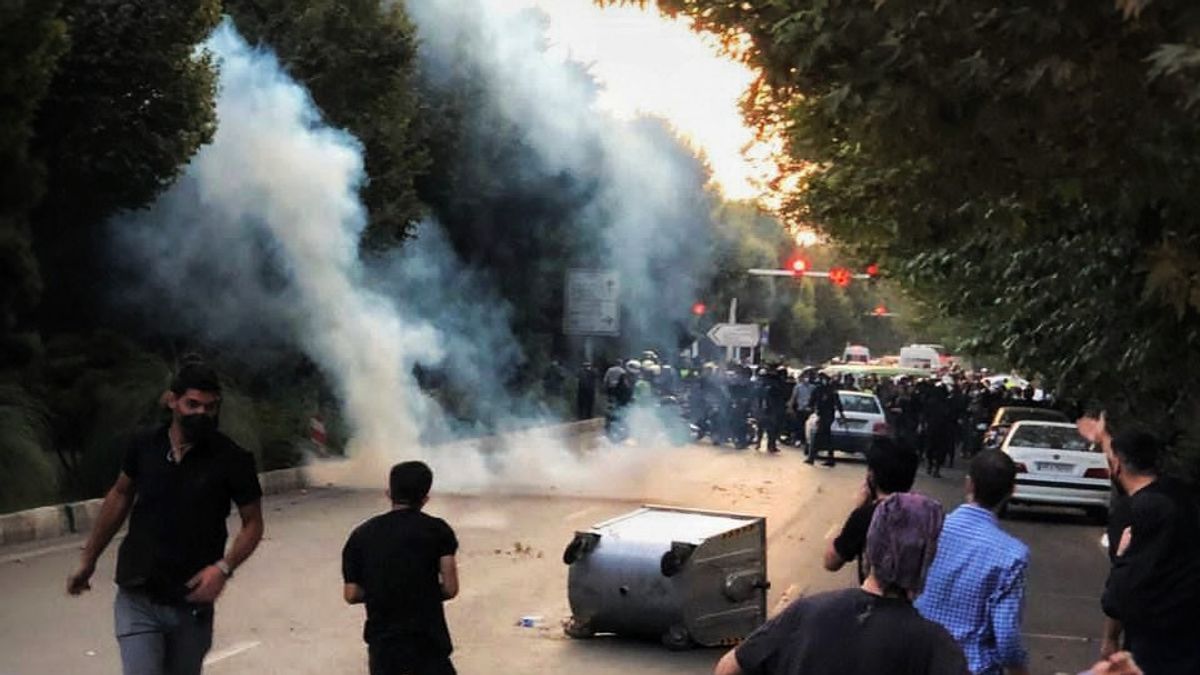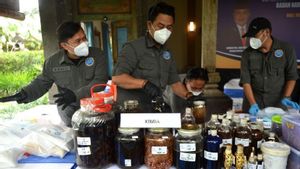JAKARTA - Niloofar Hamedi, an Iranian journalist who specializes in women's rights, has passed with harsh stories for years, was arrested by the Iranian authorities, after uploading a photo of Mahsa Amini's parent, an Iranian girl whose death drew national protests.
Hamedi took a photo of Mahsa Amini's parents hugging each other at Tehran hospital, where their daughter was lying in a coma.
The photo, which Hamedi uploaded on Twitter on September 16, is the first sign to the world that everything was not doing well with Amini (22), who had been detained three days earlier by Iranian moral police, because of the clothes they deem inappropriate.
Amini's death that day sparked a wave of mass protests across Iran that was still ongoing nearly three weeks later in parts of the country, despite a crackdown on the government.
Amini's parents' photo is also one of the last things Hamedi worked for Sharq's pro-reformation daily, uploaded before he was arrested a few days later, with his Twitter account listed as suspended.
"This morning, intelligence agents raided the house of my client Niloofar Hamedi, arrested him, searched his house, and confiscated his belongings," tweeted Hamedi's lawyer, Mohammad Ali Kamfirouzi on Twitter on September 22, citing Reuters October 12.
Hamedi has not been charged and is being held in an isolation cell in Iran's Evin prison, he wrote.
Facing one of the boldest challenges for the Islamic Republic since the 1979 revolution, authorities have used force to suppress the biggest public demonstrations over the years.
At least 185 people, including 19 minors, were killed, hundreds injured and thousands arrested by security forces, according to human rights groups. The Iranian government says more than 20 security forces have died and will investigate the deaths of civilians.
Separately, the Journalist Protection Committee (CPJ) has called on Iranian authorities to "immediately and unconditionally release all arrested journalists, due to their coverage of Mahsa Amini's death and the protests following him".
It said last month that at least 28 journalists had been detained by security forces, including Hamedi.
Hamedi's colleagues described him as a brave journalist passionate about women's issues and rights.
His investigative articles include topics such as self-immolation among women suffering from domestic violence. He interviewed the family of Sepideh Rashno, an Iranian writer and artist, who was arrested in July for opposing the country's dress code.
"She has always gone beyond her limits to becoming the voice of a voiceless woman who has been deprived of her rights, either by her father, husband or social boundaries," one of her friends told Reuters, who spoke on condition of anonymity for fear of retaliation.
Iranian authorities have blamed violence on a range of enemies including armed dissidents Kurdi Iran, with Revolutionary Guards (IRGC) attacking their bases in neighboring Iraq several times during the latest unrest.
"We hope Hamedi returns to the office. Place his bag on the table, writing about unknown women who are victims of prejudice in Iran," wrote editor Shahrzad Hemmati on October 11.
The English, Chinese, Japanese, Arabic, and French versions are automatically generated by the AI. So there may still be inaccuracies in translating, please always see Indonesian as our main language. (system supported by DigitalSiber.id)









